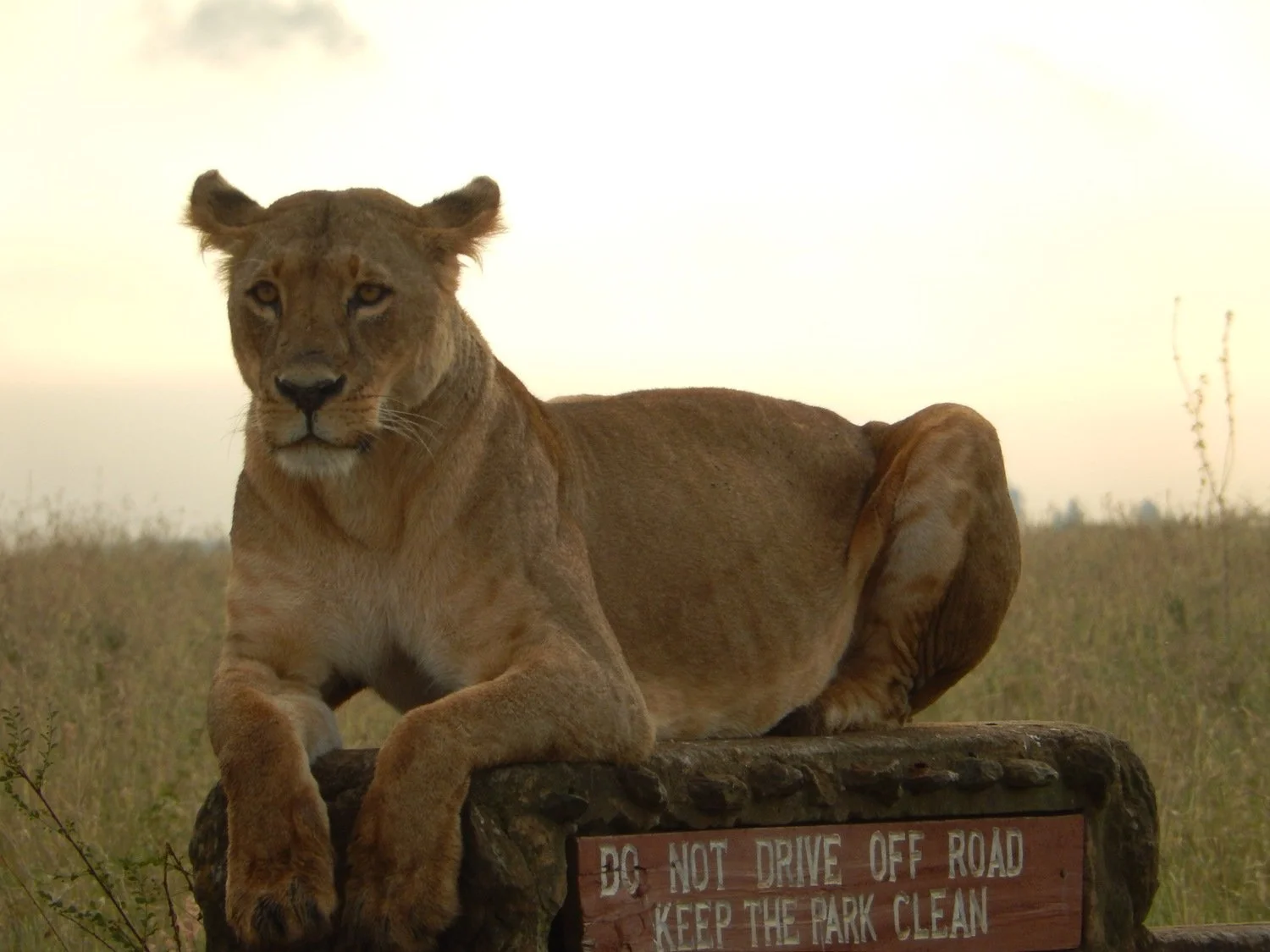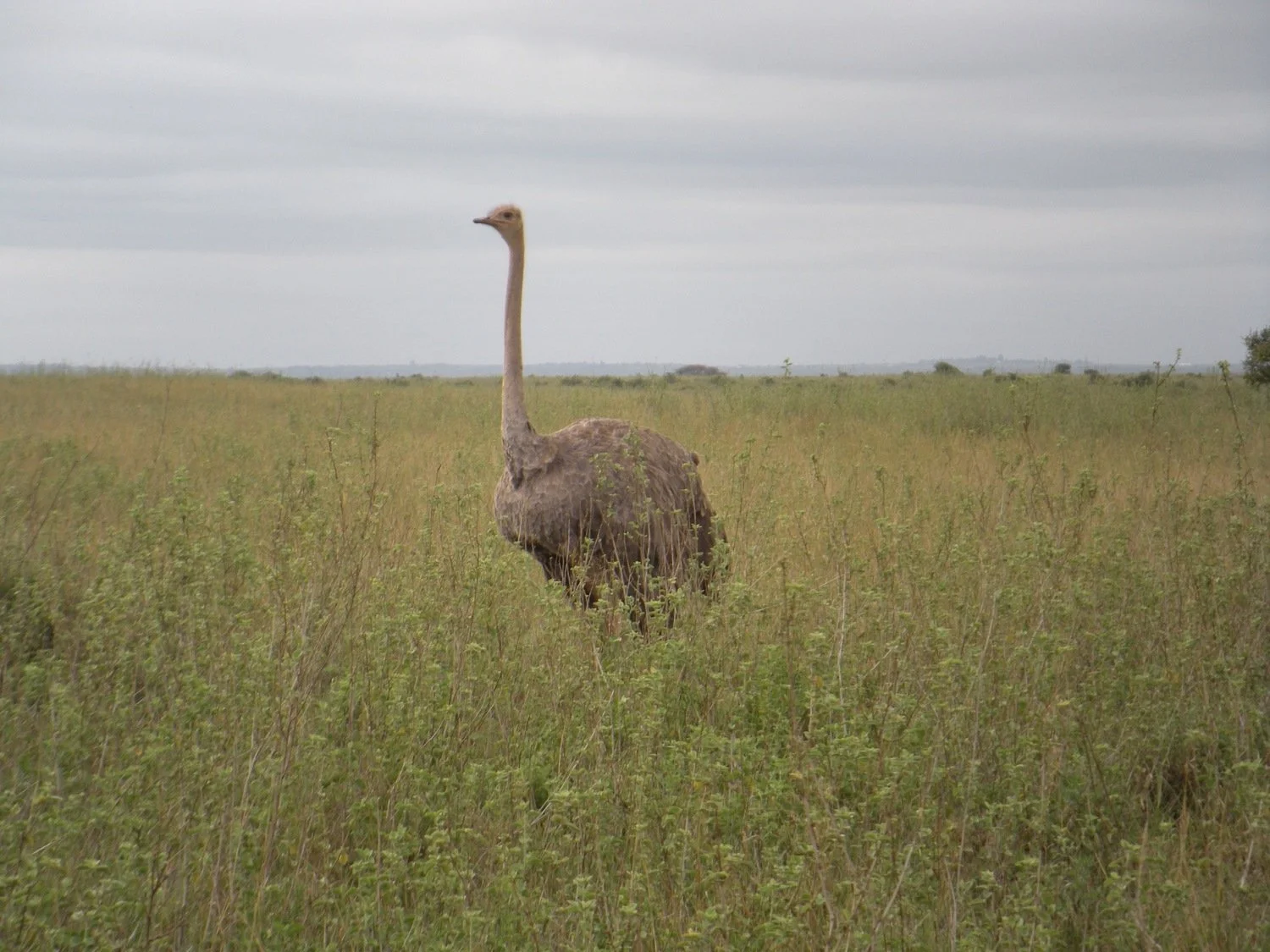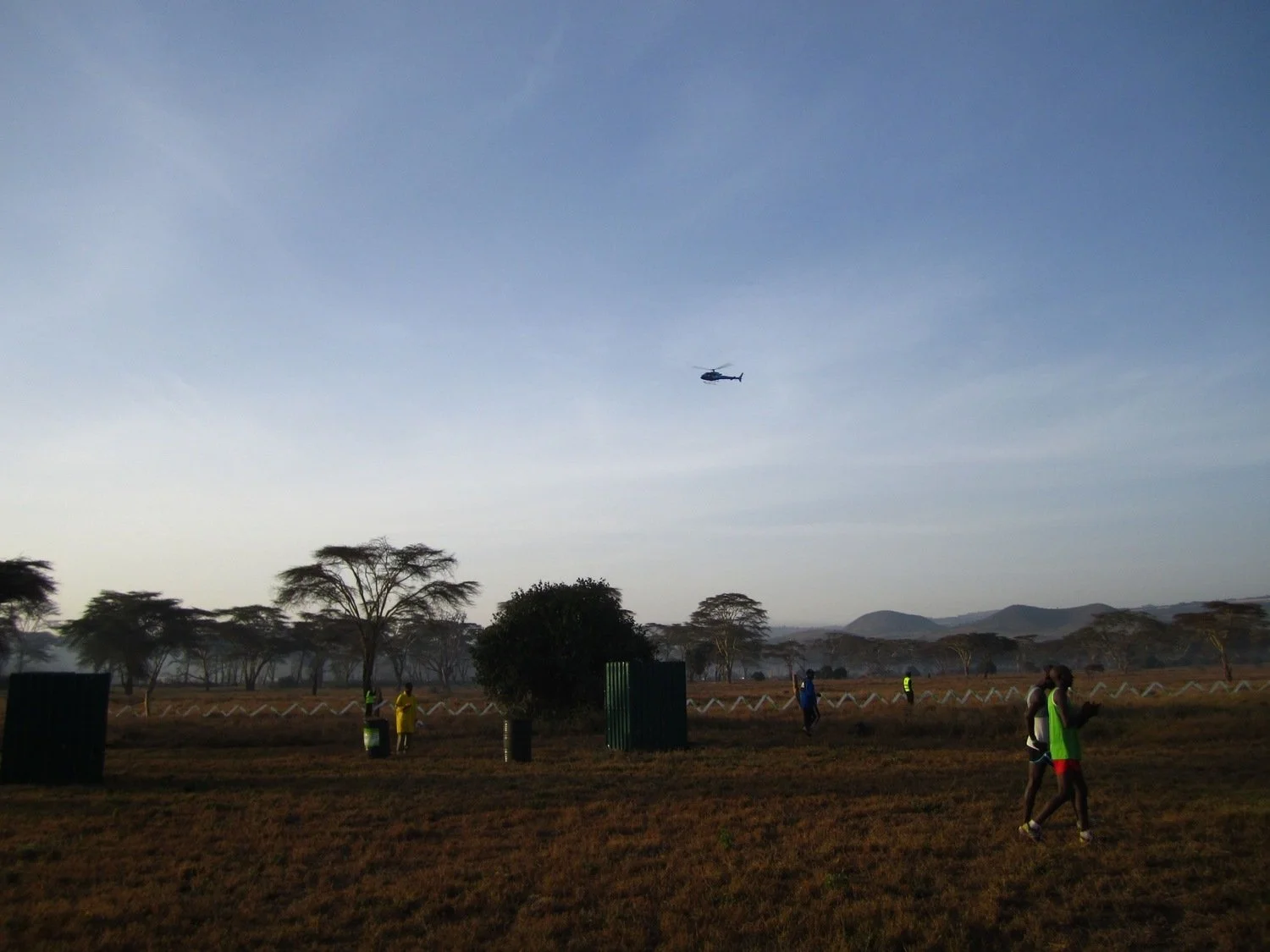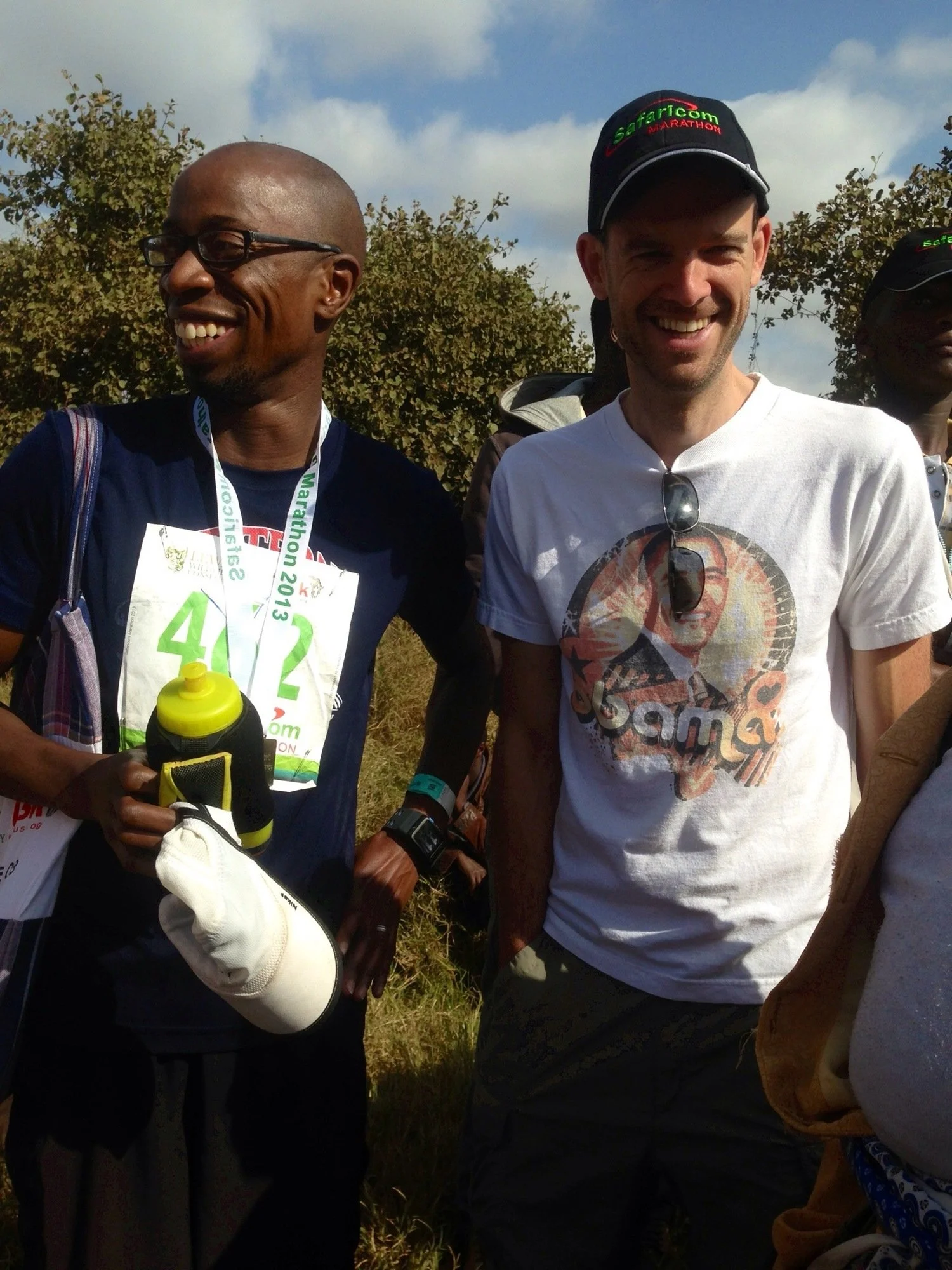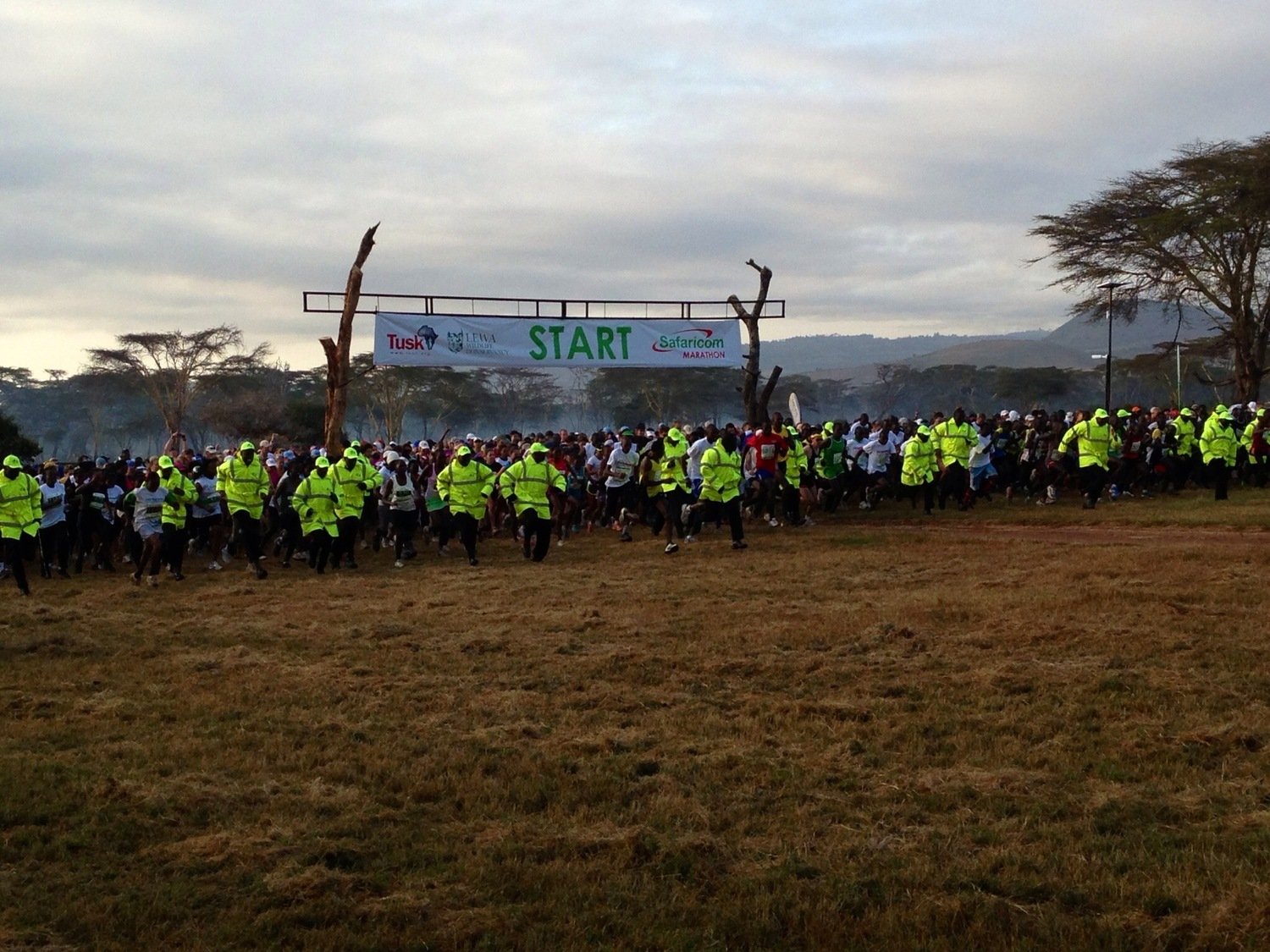How to Run with Wildlife
I was more than half finished with the marathon, and alone on the dirt road. Dusty puffs with each footfall were the only evidence I had been there. The grass, tall and dry, rustled around me as the sun radiated onto my face. “If an animal comes,” I thought, “I will lie down and let it eat me.” I knew that I couldn’t run any faster than I had already been running, and its predatory instincts would tell it that I was easy prey.
We were only this close to her in our safari van prior to the Lewa Marathon but she loomed large in my imagination as I ran.
Luckily, on that day, and for 15 years prior, at the annual Safaricom Marathon on the Lewa Game Reserve in Kenya, no predators came close to eating people. Instead, the runners saw giraffes and zebra, crossed paths with ostriches, and watched hapless water buffalo being chased away by the game warden’s helicopter.
You'll learn even more about the giraffe's in Kenya during our two week trip.
For those of us who live in Northern California, running with wildlife is not out of the ordinary. There are the ducks and geese at Lake Merritt, the squirrels and salamanders in Redwood Park, and the tarantulas on Mt. Diablo. And yet there is something special about running in Lewa, where you join one of the world’s best-rated marathons and help benefit wildlife conservation efforts and local community support projects.
At Lewa, as with any of our local parks and attractions, park officials monitor and maintain the safety of the runners. At Lewa, they use helicopters and course monitors to ensure that runners get to enjoy the wildlife and focus on their sport.
The early morning helicopters.
Here are my tips to enjoy the wildlife:
1. Don’t be afraid to carry your iPhone – this is the one race where you can slow down to enjoy an unexpected sight.
2. Despite what you may feel when you are at your lowest energy point, you are not food for these nearby creatures. Remember that, but allow your dramatic thoughts to spur you to the finish line!
3. Don’t forget that this may be your only chance to beat a Kenyan at running, so keep moving!
4. Eat a good Kenyan meal the night before. Traditional ugali with beans and greens, along with grilled goat meat, is served the night before. Ugali, a Kenyan staple, is a great carbohydrate that fuels many Kenyan running champions.
5. Drink plenty of water – it can get hot as the morning stretches toward noon.
Dr. Cory Nyamora is an endurance sports coach with certifications from USAT and USATF, a licensed clinical psychologist, and the founder of Endurance – A Sports & Psychology Center, Inc. He provides endurance coaching for beginner and experienced athletes, as well as psychotherapy services to children, adults, and families. If you are interested in coaching or traveling to Kenya contact him at runinkenya@gmail.com
Alive and happy, post 26.2 mile run
Morning temperatures are usually in the low 60s, Fahrenheit.

